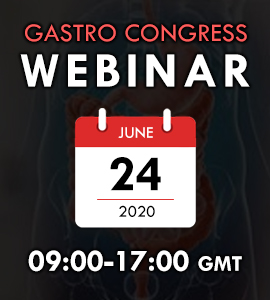
Sara EL Wakeel
Misr International University, Egypt
Title: Anti-fibrotic impact of Carvedilol in a CCl-4 model of liver fibrosis via serum microRNA-200a/SMAD7 enhancement to bridle TGF-β1/EMTtrack
Biography
Biography: Sara EL Wakeel
Abstract
Circulating microRNAs (miRNAs) play a role in modulating the prevalence of fibrosis and have been a target of the cardiac anti-fibrotic effect of carvedilol. However, the impact of miRNAs on the hepatoprotective effect of this non-selective β-blocker has not been yet elucidated. Hence, the current goal is to evaluate the potential role of circulating miR-200a in the hepatic anti-fibrotic pathway of carvedilol. Male Wistar rats were randomized into normal, CCl4 (2 ml/kg, i. P, twice weekly for 8 weeks), and CCl4+Carvedilol (10mg/kg, p. O, daily). Carvedilol over-expressed the circulating miR-200a to modulate epithelial mesenchymal transition (EMT) markers (vimentin, ECadherin).
In turn, carvedilol increased SMAD7 gene expression and protein content to attenuate the pro-fibro genic marker transforming growth factor β1 (TGF-β1) and the inflammatory markers (p-38 MAPK and p-S536-NF-κB p65). The anti-fibrotic potential was reflected on the decreased expression of the mesenchymal product and EMT marker α-SMA, besides the improved histopathological examination, and the fibrosis scores/collagen quantification to enhance liver functions (AST, ALT, ALP, and AST/ platelet ratio index; APRI). In conclusion, circulating miR200a/SMAD7/ TGF-β1/EMT/ MAPK axis is crucial in the hepatic anti-fibrotic mechanism of carvedilol.

